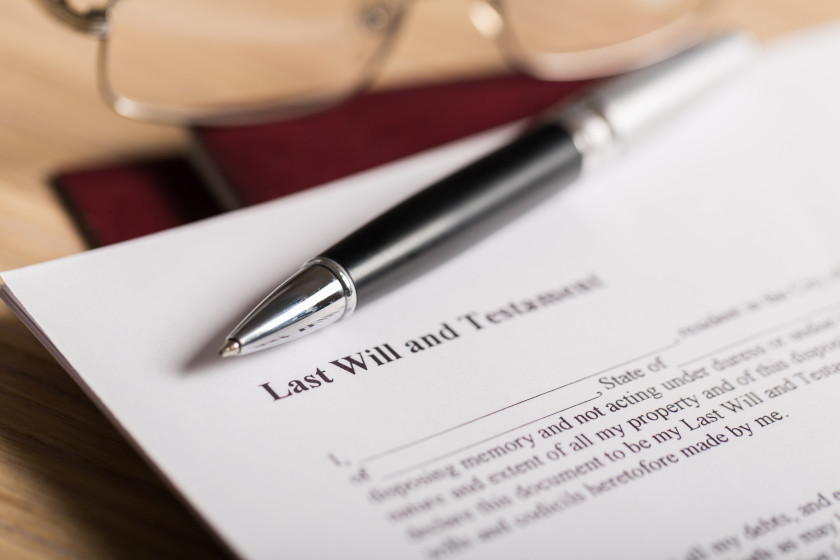Pre & Postnuptial Agreement Solicitors
The future is unknown. Your experienced prenuptial lawyer will help you prepare for every eventuality.
Home » Services » Divorce & Family » Prenuptial & Postnuptial Agreements
Home » Services » Divorce & Family » Prenuptial & Postnuptial Agreements
Pre & postnuptial agreements in the UK
Pre and postnuptial agreements are marital contracts that determine the financial terms of the relationship and can provide more certainty on how assets will be split if the marriage were to break down. Whilst some may consider marital agreements to be pessimistic, they shouldn’t be viewed in this way. These agreements actually enable both parties to enter into a marriage in an open and honest way.
As pre and postnuptial agreements become more common in England and Wales, the courts give them far more weight when determining how assets should be split should the relationship dissolve further down the line. If you need help setting up a pre or postnuptial agreement, Goughs can assist you.
Why get a pre or postnuptial agreement?
There are several reasons why someone may consider a prenuptial agreement. A prenup provides a level of financial protection, it can promote transparency, reduce conflicts, and provide peace of mind by clarifying financial expectations and responsibilities within the marriage.
Safeguard their premarital assets
Establish clear guidelines for asset division in the event of a divorce or separation
Address important financial matters such as debts, inheritances, and business ownership

Prenuptial agreements
A prenuptial agreement, often known as a prenup, is a contract entered into by a couple that plan to get married or have a civil partnership ceremony in the near future. Usually they have a date in mind. The agreement sets out what the couple want to happen with their finances if the relationship were to break down in the future.
Prenuptial agreements are very common in America, and are accepted in all 50 states. However, they are becoming more popular in England and Wales as a way of preventing complications that can arise during a divorce settlement.
Related content: What is a prenuptial agreement?
Is a prenup right for me?
Historically, prenups were mainly taken up by the rich and famous as a way of protecting their wealth in the event of a divorce. However, prenuptial agreements are being used increasingly by couples with a more modest financial outlook, who want some predictability and stability were their relationship to break down.
No one enters into a relationship or gets married with the expectation that it will end, so it is ultimately the decision of you and your partner whether you enter into a prenuptial agreement.
Some examples of where a prenuptial agreement may be useful include:
- If either you or your partner possess a property or any valuable assets prior to the marriage, and you wish to safeguard them
- If either you or your partner have received or anticipate receiving an inheritance
- If either you or your partner have established or are in the process of establishing a business
- If either you or your partner are entering into a second marriage, or you are marrying later in life, and possess a significant amount of personal wealth that you are eager to protect, or if you have children from a previous relationship and wish to secure their inheritance prospects
- If either you or your partner have experienced a divorce previously and are aware of the emotional and financial toll of legal proceedings after separation, and wish to take measures to minimise such consequences
- If either you or your partner have assets overseas or connections with another country, and seek consistency in determining the outcomes in case of a marital breakdown
Postnuptial agreements
A postnuptial agreement is an agreement entered into by a couple who are already married or in a civil partnership that want to officially set out what they intend to happen to their money and property if their marriage or civil partnership were to end.
A couple may enter into a postnuptial agreement because they didn’t enter into a prenuptial agreement before getting married, or they have reconciled following a period of separation. They are also commonly considered where there have been strains in the relationship, and one party is due to receive a significant sum of money through inheritance or the sale of business, or there are other significant changes envisaged to the finances in the near future.
Related content: What is a postnuptial agreement?

Specialist pre and postnuptial agreement solicitors
There are a few steps that you need to take in order to enter into a prenuptial or prenuptial agreement. The first thing to consider is that both partners will need to seek independent legal advice from different solicitors before signing the agreement. The key questions that you need to think about are:
- What assets do you have?
- What assets does your partner have?
- What financial needs would you have if you were to separate? What about the needs of your partner?
- Do you have any children? If so, what are their current and potential future needs?
Once you have considered the above questions and have answers to the best of your ability, Goughs will draft the agreement document for you. Your partner’s solicitor will need to review the document and go through it with your partner to ensure everyone fully understands the terms, and will suggest any necessary amendments.
Once both parties in the partnership are happy with the documents, both will be required to sign it. For a prenuptial agreement this will preferably be signed and completed at least 28 days before the wedding. For a prenuptial or postnuptial agreement to stand the best prospects of being upheld by a court in the event of divorce the following should be complied with wherever possible:
- Both parties have independent legal advice
- There is no time or other pressure on either party - no pressure to sign on the eve of the Wedding Day
- There has been full financial disclosure between the parties so that there is nothing hidden
- The agreement provides for a fair settlement in the eventuality of divorce
- The agreement is clearly understood by both parties - the simpler the agreement the better
Pre & post nuptial FAQs
The main difference between a prenuptial agreement and a postnuptial agreement is that you can only get a prenup before you are legally married, but you can get a postnup after getting married.
Yes, both prenuptial and postnuptial agreements are generally considered valid and enforceable in the UK. While they are not automatically binding, the UK courts have recognized their legal significance and often uphold them, especially when certain conditions are met.
A prenup offers protection by allowing individuals to safeguard their premarital assets, clarify financial arrangements, allocate debts, establish spousal support terms, protect family inheritances, and minimise conflicts related to finances. It provides legal certainty and transparency regarding asset division and financial responsibilities during the marriage and in the event of a divorce or separation.
It’s important to have open and honest communication with your partner about the topic of prenuptial agreements, as they can be sensitive. Consulting with a marital agreement solicitor will help you understand the legal implications and determine if a prenup is appropriate for your specific circumstances. Ultimately, the decision to have a prenuptial agreement is a personal one that should be made based on your own needs, priorities, and values.
There are several benefits of a prenuptial agreement. Firstly, it helps couples that are about to get married ensure that their respective assets will be protected should the marriage end in a divorce.
Another benefit of a prenup is that it can help to reduce the amount of conflict that can arise during a divorce. Divorces can be stressful experiences for both parties, so by already having a prenuptial agreement in place, everyone is aware of what to expect if the relationship breaks down. This can help to lessen the time and money that a couple would have to spend in court, which could make the divorce process run smoother.
A prenup can also specify how existing debts will be allocated between spouses, shielding one party from assuming responsibility for the other’s debts acquired before the marriage.
The cost of a marital agreement in the UK can vary depending on several factors, including the complexity of the agreement, the expertise of the solicitor drafting it, and the specific requirements of the individuals involved.
For a typical pre or postnuptial agreement, solicitors’ fees usually range between £1,500 and £3,000, with this figure increasing as the value of assets and the complexity of the case increases. However, if the case is particularly complicated, or the cost of the assets totals a large sum, this fee can increase up to £10,000 and beyond.
It is recommended to consult with a prenuptial agreement solicitor for an accurate cost, based on your unique circumstances and the level of legal assistance required.
You can get a postnuptial agreement at any point after you get married or enter into a civil partnership.
The process of entering into a postnuptial agreement is very similar to that of a prenuptial agreement. The contracts should be made in writing, and both people are required to sign it.
The signing of the document needs to be witnessed by 2 other people. Just like in a prenup, each party needs to seek independent legal advice before signing the postnuptial agreement.
A prenuptial agreement is often a more straightforward process than a postnuptial agreement, as it is made before a couple combines assets. However, divorce lawyers would argue that a postnuptial agreement is better than no agreement at all, particularly for couples in second marriages or who own substantial assets.
While it is argued that marital agreements are advised, especially if large sums of money or substantial assets are involved, it is important to consider the potential drawbacks of them.
For example, some spouses may feel that signing a pre or postnuptial agreement means that a divorce is more likely. It helps to have honest conversations with each other or to involve a therapist to minimise conflict.
As well as this, if both spouses do not agree to certain provisions of the agreement, it can stall the process or lead to resentment.
In situations where there is a significant disparity in assets or income between spouses, negotiations may become imbalanced, potentially leading to coercion or the erosion of rights for the disadvantaged spouse.
Because a postnuptial agreement happens after marriage, it can receive a higher level of scrutiny in divorce court. The judge may change or eliminate certain provisions if they feel that the agreement isn’t fair.
While prenuptial and postnuptial agreements are not inherently legally binding in England and Wales, the UK Supreme Court has acknowledged their validity and significance.
Because of this, pre and postnuptial agreements often influence the outcome of divorce settlements in the instance that both parties have taken legal advice. Unless the agreement is extremely unfair to one party, or it fails to meet the needs of any children, the court is likely to uphold it.
However, each case is assessed individually, and the court has the discretion to set aside or modify a prenuptial agreement if it is deemed unfair or if there are significant changes in circumstances. It is advisable to seek legal advice when creating a prenuptial agreement to ensure its validity and compliance with UK laws.
Our clients rate us as excellent


Chambers & Partners
The team is extremely thorough and client-focused. They are willing to go the extra mile and think outside the box.

P B, Corsham
Thank you for all your help, guidance and understanding. You and your team have been outstanding during a very difficult time and managed the case through to a highly satisfactory conclusion.


T H, Chippenham
I could not have wished for a more professional dedicated team, I am so grateful for all their help and support, I would highly recommend Goughs solicitors to family and friends.


Legal 500
The practice is very unique in that the service is so personal and impeccable. Attention is given to ALL detail and communication is frequent and timely.

TH
I could not have wished for a more professional dedicated team, I am so grateful for all their help and support, I would highly recommend Goughs solicitors to family and friends.
Meet the family law team
Why choose the Goughs family law team?

Local since 1882, with an excellent reputation
First-class, effective service

Largest solicitors in Wiltshire
Seven offices throughout the county

Nationally accredited law firm
Recognised by Legal 500 and Chambers & Partners
Why wait? Let's talk
Fill out the form below and we will get back to you!
















